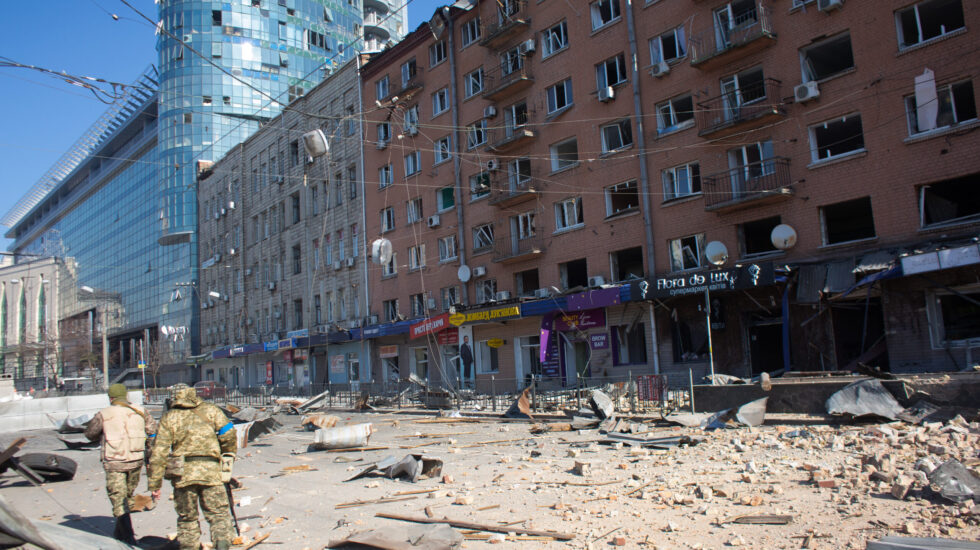Peace talks between Russian and Ukrainian delegations in Turkey seemed to yield progress on Tuesday, as Russia promised to “drastically reduce military activity” against Kyiv and Chernihiv, two northern cities.
“Deputy Defense Minister Alexander Fomin said the move was meant to increase trust in the talks after several rounds of failed negotiations to halt the conflict that has devolved into a bloody campaign of attrition,” notes The Associated Press.
The New York Times reports:
Russia’s apparent concessions in northern Ukraine reflected successful Ukrainian resistance that has bogged down Moscow’s forces in fierce fighting around Kyiv’s suburbs and retaken territory in recent days near the capital and cities closer to the Russian border.
Reuters provides similar context:
The talks in a palace in Istanbul came as Russia’s invasion has been halted on most fronts by strong resistance, with Ukrainians recapturing territory in counter-attacks, even as civilians are trapped in besieged cities.
CNN adds:
In the US view, this is not a short-term adjustment to regroup, but a longer-term move as Russia comes to grips with failure to advance in the north. The official said one consequence the US is concerned about, is keeping the European allies unified on economic pressure and military support as Washington expects some of them to press Ukraine to accept a peace deal to end the fighting.
Ukraine’s military intelligence head says Russian President Vladimir Putin could be looking to carve Ukraine in two – like North and South Korea.
Brig. Gen. Kyrylo Budanov, the head of Ukraine’s Defense Intelligence Agency, said Russia’s operations around Kyiv had failed and it was now impossible for the Russian army to overthrow the Ukrainian government. Putin’s war was now focused on the south and the east of the country, he said.
Vladimir Medinsky, Russia’s chief negotiator, indicated after the peace talks in Istanbul that he’d accept an accelerated timeline for a meeting between Ukrainian president Volodymyr Zelensky and Putin. Medinsky said the meeting would take place once a draft peace agreement was created.
More from The AP:
Ukraine’s team, meanwhile, set out a detailed framework for a future peace deal under which the country would remain neutral but its security would be guaranteed by a group of third countries, including the U.S., Britain, France, Turkey, China and Poland, in an arrangement similar to NATO’s an “attack on one is an attack on all” principle.
Reuters adds:
The proposals would include a 15-year consultation period on the status of Russian-annexed Crimea, and could come into force only in the event of a complete ceasefire, the negotiators said.
The fate of the southeastern Donbas region, which Russia demands Ukraine cede to separatists, would be set aside to be discussed by the Ukrainian and Russian leaders, they added. Any peace deal would require a referendum in Ukraine.
The Ukrainian government has vowed to put any security agreement to a popular vote.
“It will be a referendum in which all citizens of Ukraine will express their position on this agreement, on how it should work,” Mykhaylo Podoliak, an adviser to Ukrainian President Volodymyr Zelensky, said.
After the meeting in Istanbul, Podoliak said both sides are still “discussing a humanitarian ceasefire,” stressing there are “many places where humanitarian corridors are needed.”



